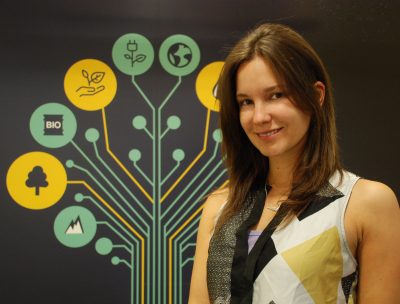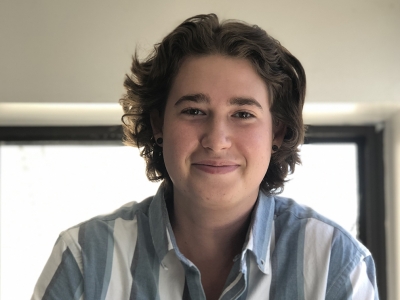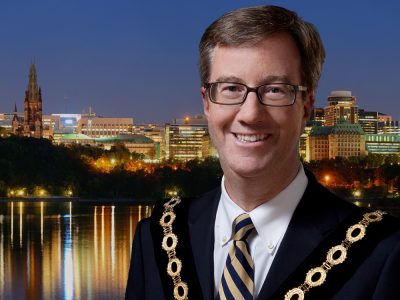This profile was part of the Faculty of Public and Global Affairs’ Generation FPA series, which highlighted up and coming alumni who graduated between 2008-2018. The series was published in 2018.
Janice Pillon is a Policy Advisor at Innovation, Science and Economic Development Canada.
How did you become interested in sustainable energy?
After receiving a bachelor’s degree in environmental studies, I spent a summer studying the emissions reduction potential of different technologies in Iceland. It was my first hands-on experience with renewable energy and I learned about the massive barriers and limitations of our existing solutions: essentially, there is no magic bullet. I wanted to understand the technology better, so I started looking at graduate programs.

What attracted you to this degree?
The interdisciplinary approach sealed it for me. If I was going to learn policy, I wanted to understand what I was talking about from all angles. The program is unique because it includes courses like engineering for policy students, which explains how technologies work on a basic level and the most important things engineers have to consider in the design of energy systems. It also has a project-focused course that helps students better understand the business case behind energy projects.
How did you get your start in the public service?
One of the faculty members recommended me for a position at Natural Resources Canada where I started as a co-op student. After that, I was accepted into the Advanced Policy Analyst Program with the federal government. This allows you to spend six months at each of the government’s central agencies, where I was able to find a niche in energy and the environment. For instance, at the Privy Council Office, I worked on environment and natural resource files, and at Treasury Board, I worked on electric vehicle policy.
Innovation, Science and Economic Development Canada supported my work at these agencies for two years, and now I’ve returned to work for them in their Clean Growth and Clean Technologies Branch.
What does your current position entail?
This is a new policy team in the department, so I’m helping build our capacity. Practically, that means conducting research into the business case for clean technologies, and getting to know stakeholders, think tanks, and others. We’re building up the ability of the department to respond to new industry developments and are providing policy advice. It’s a great opportunity to break new ground.
How has your degree helped you on the job?
My MA experience instilled an ability to think critically about policy and energy issues. As I’m following the industry and doing a lot of research, it’s something I’m using every day.
Thursday, November 8, 2018 in GenFPA, School of Public Policy and Administration
Share: Twitter, Facebook



